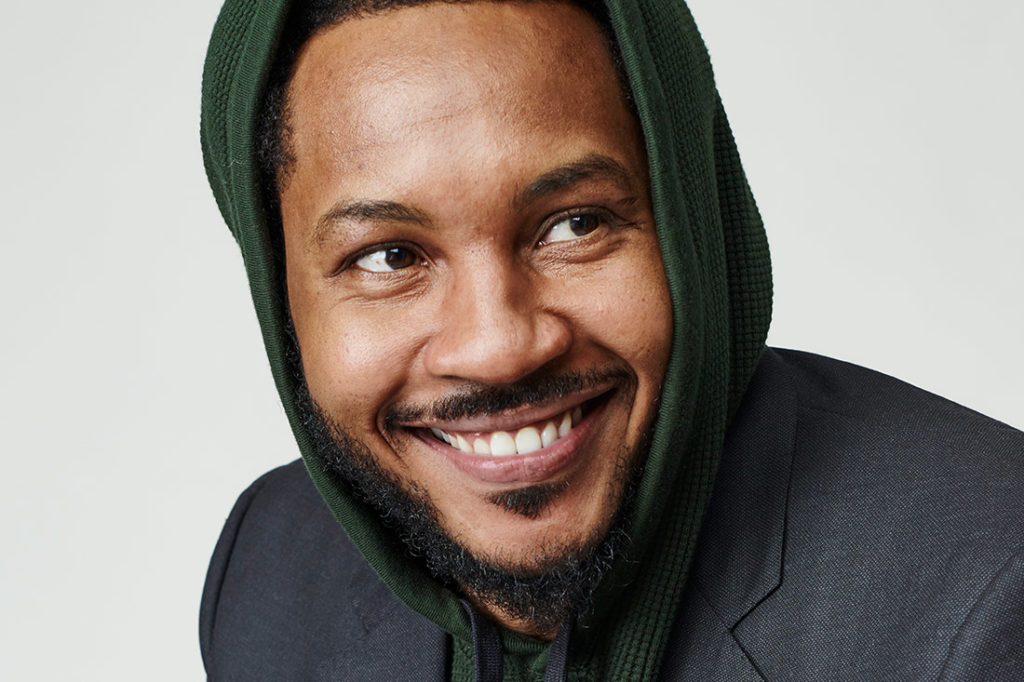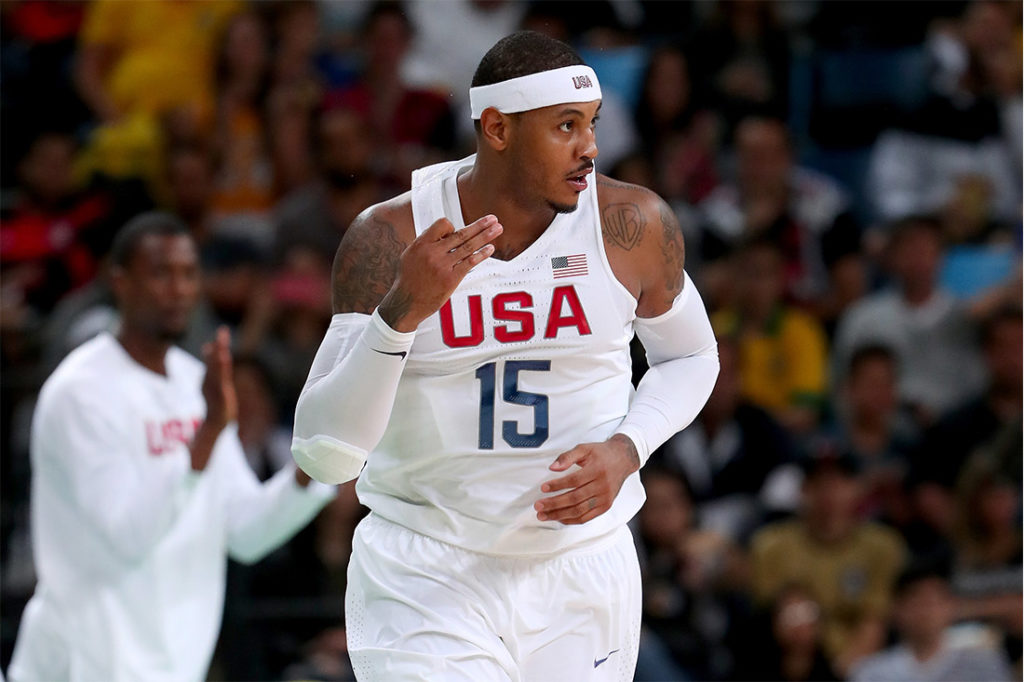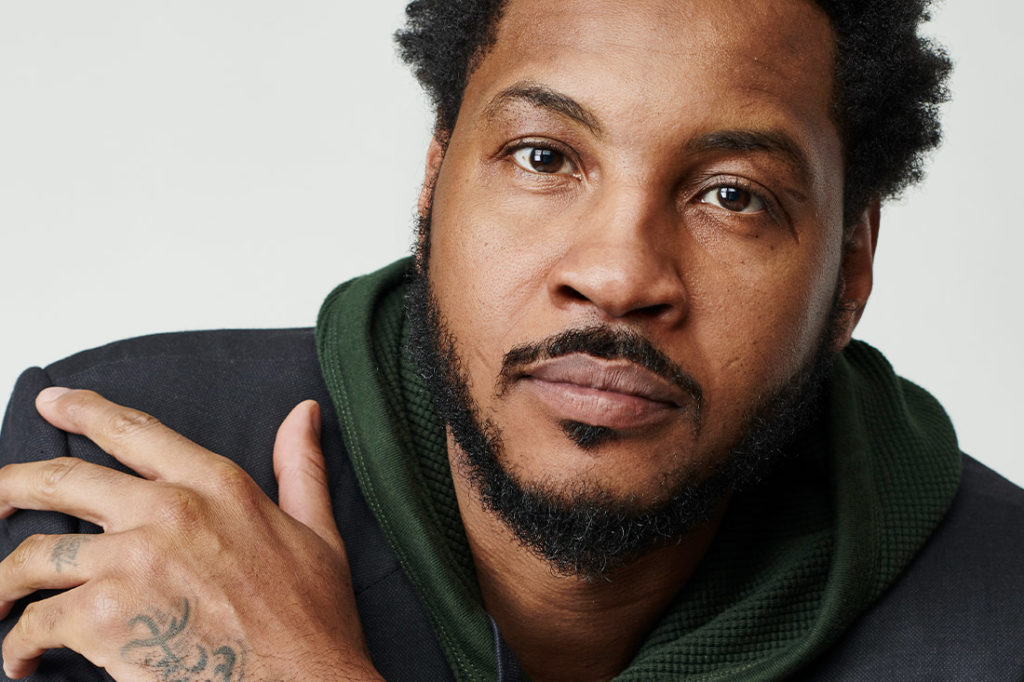Editor’s Note: The SUCCESS Interview tests the foundational principles of this 124-year-old personal and professional development magazine against modern realities. Editor-in-Chief Josh Ellis will sit down with newsmakers, opinion-shapers and undisputed achievers to find out how we can all get ahead in a world changing faster than ever.
In this edition, we chat with three-time Olympic gold medalist and future basketball hall of fame member Carmelo Anthony. A respected 18-year veteran within the game, Anthony is an elected member of the NBA’s Social Justice Coalition Board. At the same time he is an experienced entrepreneur, as the founder of venture capital firm Melo7 Tech, production company Creative 7, as well as a fashion label, STAYME7O. His memoir, Where Tomorrows Aren’t Promised, will be released Sept. 14.
This Q&A has been edited for clarity and space considerations. To view the interview in its entirety, join our social network, Achievers, at Achievers.SUCCESS.com or by downloading the app SUCCESS Achievers Community.
Josh Ellis: Thanks for joining me Carmelo, and congratulations on the upcoming book. You really open up in it about some of the challenges you faced as a kid in Baltimore—poverty, racism, violence, mental illness, a broken education system. Can you share some of the context of what life was really like for you growing up?
Carmelo Anthony: Thanks for having me, Josh. Well, yeah, life was challenging. It was a constant looking-over-your-shoulder. Just like any other city, any inner city, any ghetto, any hood, it was poverty. It was fights. It was murder. It was prostitution. It was drug addicts. These are all things that I saw and just got immune to that. It was like, I know her. I know him. He’s getting high over there. Oh, so-and-so just got shot yesterday. Oh, cool. You become immune to that environment, and you almost start to become a product of your environment.
It feels like another lifetime, but I am so connected to that world, that I feel like it was just yesterday.
JE: You had some unique talents that helped you make it out of that, but there are a lot of talented people—a lot of talented people of color, unfortunately—who cannot overcome those realities. How did you beat the odds?
CA: It was survival; every day it was a new way of trying to attack that day. You know, of course, I had friends, I had family, but when you’re all going through it at the same time and dealing with the same issues, everybody has each other’s back. You don’t really know what you’re going through until you step out of it, and now, I’m able to really analyze that environment, and that’s what sparked me to actually write the book. All of these years having the opportunity to now look back into those worlds and being able to analyze that, and be like, Damn. I really survived this. I really made this. Made it out of this.
JE: A lot of the work that you do now, through your companies and philanthropically through the Carmelo Anthony Foundation, is meant to create opportunities for the next generation or to further social justice and hopefully begin to address some of the issues that created such a difficult upbringing for you. Would you explain, for example, how your work now, say with the fashion label, can have the power to create change?
CA: Yeah, my fashion label is built for that. It’s to propel the actual next designer, or the designers that don’t get the recognition they deserve, or don’t have the resources that they really need to be successful. The fashion line helps me give back to those different communities that need it, to underprivileged designers who are struggling out there, trying to make ends meet, to make a T-shirt, or a hat or a pair of socks.
JE: Why was it important for you to direct the fashion label toward the Black experience?
CA: I mean, we see enough of the other world experiences, right? We see enough of that. And it’s no knock to that, but now we’ve got to start going back to—I like to call them the understudies—the understudies of these big fashion houses or these big designers. What about the people that are on the ground that actually have all of the creativity that no one would ever recognize, or show them or put them in a position where they can take that next step and better themselves. So that’s really what it’s about. We’re here to propel people forward.
JE: I’m interested in your take on the responsibility that business owners or founders have to make their global, social or political values foundational to their companies and how they run them. When you started your production company, Creative 7, did that come naturally, or were you really deliberate about instituting that from the very start?
CA: It was both. It was definitely a natural thing for me to do, being that I know those types of stories we are telling and those environments. I can relate to those environments and to those stories, whether it’s a time frame piece about a moment in our history, or the underprivileged and the real heroes and people that we should be acknowledging that don’t get the acknowledgment.
We’re telling a part of the Black experience, as well, you know, and we’re also talking about the human experience, at the same time. So yes, that came naturally to me, but I was also very intentional in building the pillars of our company off of authenticity—real, true, factual stories. Some stories are going to be uplifting. Some stories are going to make you laugh. Some stories are going to make you cry. I want people to go through that journey with me as I’m telling these stories.

JE: How do you keep the value to the world or your community first in your businesses so that those things never take a backseat to profit or simple business realities?
CA: There is a time where you have to sit back, as a businessman, as an owner, and think, OK, value versus profit? Those are things that you really have to take into consideration when you’re doing business. Fortunately enough we’re in startups [with Melo7 Tech]. We’re in seed rounds, so we’re able to get with the founders when there are only three people in the office, and it’s the idea stage.
I actually love those things. I get a chance to build with the owner and with the company, and five years later see where the company is, see the growth. I love that feeling, and I invest in companies where I believe in the founder. You know sometimes it could be a great idea, the world’s best idea. But if the founder is not for me, if I don’t feel like I vibe with the founder, or if I don’t feel like he meets what I stand for, then I’ll pass. And I’ve passed on multiple companies before, when it came to that.
JE: There are, of course, entrepreneurs who have different social or political viewpoints, and sometimes they make those viewpoints integral to their businesses, as well. How do we avoid fracturing as a society, or as an economy, along those faults, and instead bridge our gaps to push progress forward?
CA: We’ve got to talk. We’ve got to communicate with one another. Times are changing.
The old way of working things and living things, and not talking to people and not communicating, and letting politics, you know, kind of split people, I think those days are finally coming to an end, and I’m happy about that. I think that’s the way we can bridge those gaps—to keep the conversation going. We have to. We can’t get too comfortable.
JE: During the course of your career in the NBA, it seems that the players have really taken control of the league from the team owners or governors. As a veteran who understands the business, what are the implications of that?
CA: It’s similar to what I was just describing. We have to come together and say, look, even though you guys are owners and we are players, and you guys write our checks, at the end of the day, this is a business and we are partners in this. I think it took a while for the players to recognize that and understand that we are partners with the NBA, as opposed to just being employees.
You know, the decisions that are being made about the NBA, when it comes to the players, we have a say now, whereas before, we didn’t really have a say, or we were afraid to talk about it. Or we were just—I don’t want to say afraid—we weren’t business savvy enough. We weren’t aware of the things going on. We weren’t educating ourselves. We didn’t have that camaraderie that you see that we have now between the 450 players.
We have meetings. We have Zoom calls. We get together and throw ideas out there, collectively. I think that’s why you see our league propelling the way that it is, because we came to an agreement that we’re going to work with you guys. We don’t want to work against you guys.

This is the greatest league in the world, in my opinion, and growing. So, we want to make this right, and it goes back to destroying the old way of thinking and rebuilding the way we want to move forward, and that’s where we are at with the NBA, and the players association, and also the NBA Commissioner, Adam Silver. I’ve got to take my hat off to him, too, because he does a great job of allowing us, as players, to use our voices and our platforms to speak on whatever you feel near and dear to, that you need to speak on. Whatever touches you, then go ahead. He supports that and the NBA supports that. I think that’s the difference between the NBA and all the other leagues.
JE: Shoe on the other foot, then, as an entrepreneur yourself, you have your goals. The people who work for you have their own views on how things should be run, I’m sure, and their own goals. It’s just like the relationship in the NBA between the governors and the players. So how do you distribute power in what feels like the most just way for everybody?
CA: I always used to say, man, it’s got to feel weird and awkward for Michael Jordan to sit across the table from the players, as an owner. It has to be weird. It has to feel crazy when you do that, and now it’s like, man, I get it.
When you have people that work for you, you want to empower them to give you knowledge, and to give you insight and advise you. Anybody that works for me, I always try to give them the opportunity to say their opinion, or give input on a project. What’s the best way that we can make this work, as a collective?
This article originally appeared in the September/October 2021 issue of SUCCESS magazine. Photos by Doug Segars and © Tom Pennington / Getty Images










